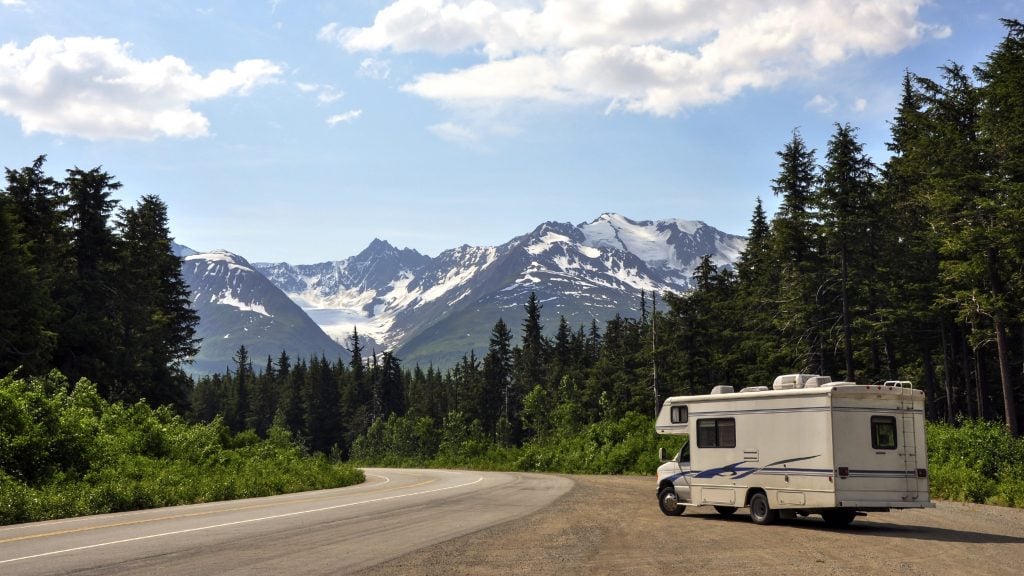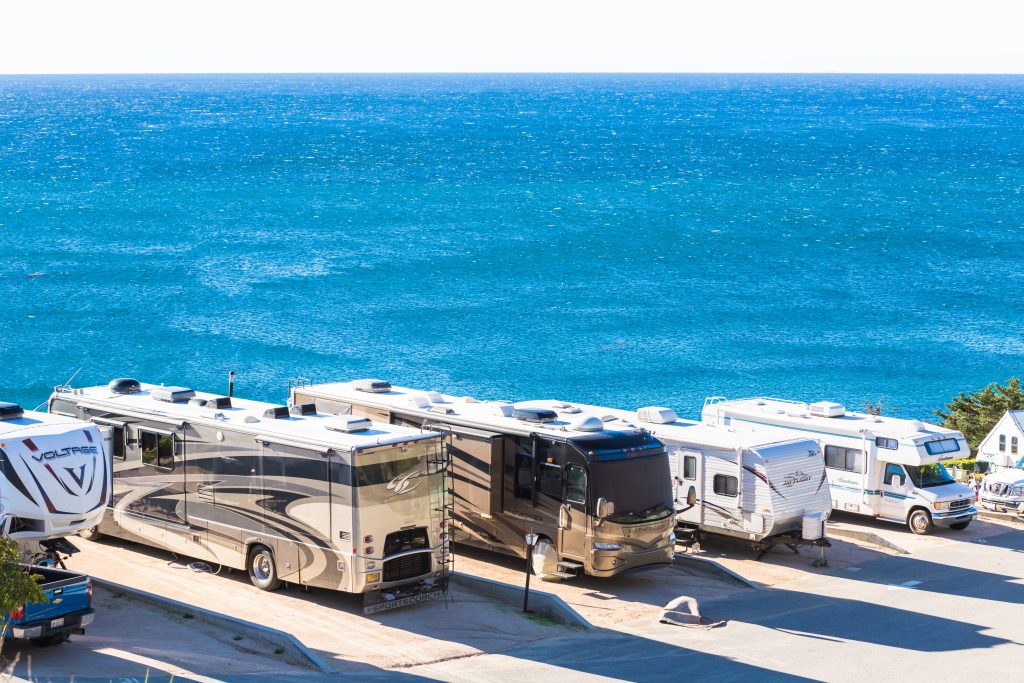
6 Misconceptions About Full-Time RV Living
Living on the road is a dream that many people aspire to achieve. It is a fantastic journey, and full-time RV living is definitely something we recommend.
That said, it is important that people understand what they’re getting into when choosing the RV life, and the many misconceptions that surround RV living can make this difficult to do.
As a family that has lived and traveled in an RV for almost 6 years, we’ve had our ups and downs. We’ve also heard it all when it comes to assumptions and misunderstandings about our lifestyle. Below are a few of the most common misconceptions about RV living.
1. It’s only for retired people
The first of these misconceptions is that RV life is only for retired people. This actually makes a little bit of sense. There once was a time when the vast majority of full-time RVers were retired folks using their retirement fund to fully enjoy life.
That said, the option of working online has become more and more prevalent, meaning more young people have been given the opportunity to work while traveling.
There is no rule stating you have to be retired in order to RV full-time. In fact, the full-time RV community now includes people of all ages and backgrounds, and for the most part, we all get along and live in harmony with one another.
2. Life is a vacation
If you think living every single day in an RV is going to be just like the RV vacations your family takes throughout the summer, think again. Full-time RV life is fun, but it does have some downsides.
There are challenges like flat tires, broken-down RVs and tow vehicles, lack of internet connection, and difficulty finding dump stations. There are also day-to-day tasks such as washing dishes and laundry, keeping up with work, and keeping the RV tidy.
Yes, we do have a blast living this way, and we have more fun days and go on more outings than the average family, but it isn’t all a relaxing vacation by any stretch of the imagination.
3. Every stop is picturesque
Instagram would have you believe that RV living means staying in gorgeous, picturesque places every single night. You might imagine waking to a backdrop of snow-capped mountains or falling asleep to the sounds of the ocean, and some nights this does happen.

However, there are other times when the view out our window is nothing more than a parking lot and a box store, and we fall asleep to the sound of traffic rushing by. Or, we might spend all night parked between loud and smelly semi trucks. Still, other nights we find ourselves tucked into a simple, clean campground with views that are pleasant enough but far from spectacular.
It all depends on where we are, what we’re doing, and what we need to be comfortable in that moment.
4. You must be rich
I can’t tell you how many times I’ve heard someone ask how we can afford RV living, assuming we must be pretty well-off to be able to afford the luxury of full-time travel.
The thing is, there is no reason you need to be rich to live and travel in an RV. Sure, you can spend a lot of money on fancy RV parks and the most extravagant attractions, but there are plenty of ways to cut costs and make RVing a very affordable way of life.
So no, we aren’t rich. In fact, we make less than most people we know. We just budget strategically and value experiences above things.
See our previous article on How To Live And Travel On Less Than $2000 A Month
5. It always saves money
On the other hand, there are many who head into full-time RV living with the idea that they are going to save a ton of money.
While it is totally possible to save money when RVing full-time (we actually do spend less than we did in a sticks-and-bricks), there are also a lot of hidden costs that need to be accounted for, and making and sticking to a strict budget is key.
You aren’t likely to save a lot of money automatically, and it’s important to know this going in so you can avoid disappointment and financial troubles.
6. RVers are lonely
The last myth about RV life is that it is lonely. I’m the first to admit that it can be a lonely life if you allow it to be. However, this is true no matter where or how you live. If you just make an effort to be with people, RV living can actually be even more social and community-oriented than the sticks-and-bricks life.
As a traveling family, we have found the Fulltime Families community to be invaluable. That said, those who are traveling without kids can find community through organizations such as Escapees. Attending an RV rally is a great way to make initial connections. From there, you can plan caravans and meetups to keep in touch and deepen your relationships.
Now that you have a better idea of what RV living is really like, you can decide if it’s for you. Obviously, it isn’t all sunshine and rainbows, but it is a pretty amazing lifestyle that does allow us to do and see many things we wouldn’t be able to experience otherwise.
If you’re still not sure if full-time RVing is right for you, check out our previous article on The Dirty Truth Of Full-Time RVing.

Really captured our 6 years of experience very accurately.
Some ‘full timers’ are actually living in their RVs because that’s the only home they have. They park in a campground, build a porch, put out potted plants and stay until they can no longer afford the rent. By then, they have no way to move their RV – either the motor is shot or the truck they used to pull it there has been replace by a small Toyota. In the end, many of our campgrounds have become trailer parks.
All true! It was the same with my boating life, people surprised to find out how much work was involved compared to the image.
We also are full timers and your article was well written. Travel safe. Robert Woods
Retired in an RV after a decade in a semi. Please ask your fellow RV’ers not to park in truck stops unless they have a dedicated area for them. Professional drivers have strict hours of service they must follow.
Wow! Paul, while I have driven OTR for several years and lots of my family members are still on that road today, I both understand but disagree. I work from ‘home’ now. I also have extremely strict hours I must keep. Telling RV folks that their time, money, and the rig they’re driving is not as important as your gig is now and was then well, kind of shortsighted, don’t you think? The real problem is there are not enough spaces, services and locations to serve the increasing number of full timers. That’s where we need to turn our focus towards.
Full time RVing?
No thank you,
I can’t live without my shop/garage.
Be prepared and educate yourself. The government will punish you for living full-time in your RV. You can not use the banking system without a “physical address”. That comes from the PATRIOT Act, section 326, the mandated CIP rolled out by FinCEN in 2004. The SEC is a little more flexible on the issue.
Do not be fooled into believing you can substitute for this fact or you’ll lose things like your healthcare along with your finances. Also be aware you may also lose your ability to vote. A legal opinion has already been rendered in Clay County Florida ( Google ‘Voter Registration – Registration based on mail forwarding service address and declaration of domicile’ ). Seems, given the current political environment, more challenges to this will be on the horizon.
Just for Kevin and information,
I have been a Full Timer in a travel trailer for the past 6 years. My health insurance is valid, my VA Benefits are valid, and I am still voting. Domicile state is important. Mine is Texas. Not all states have the same laws.